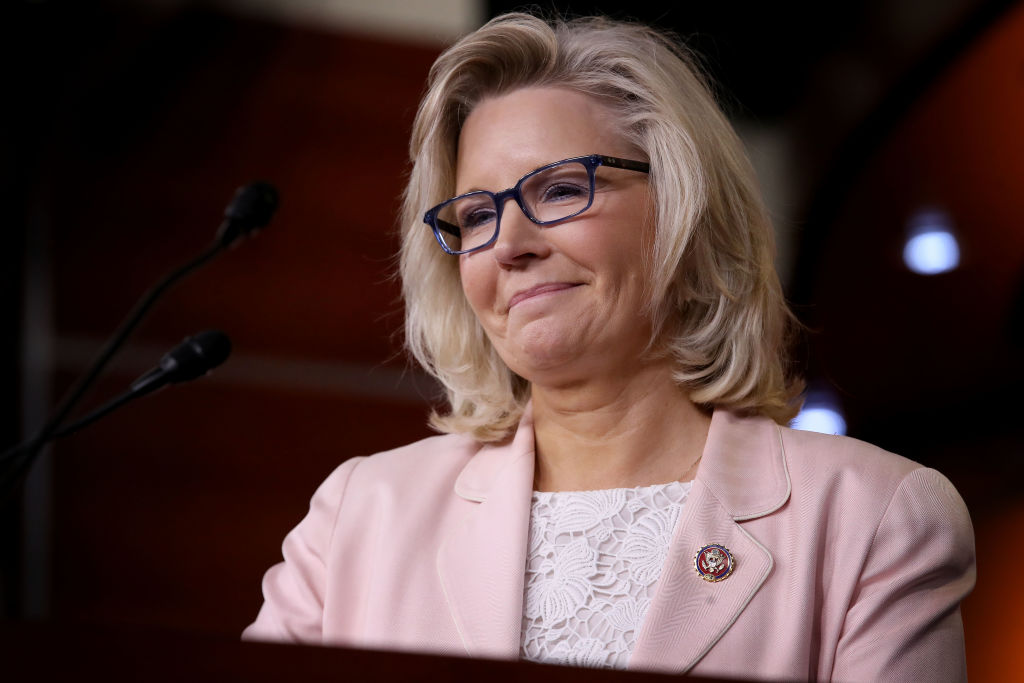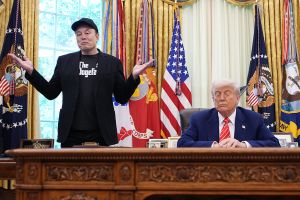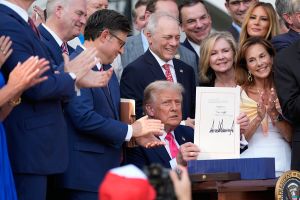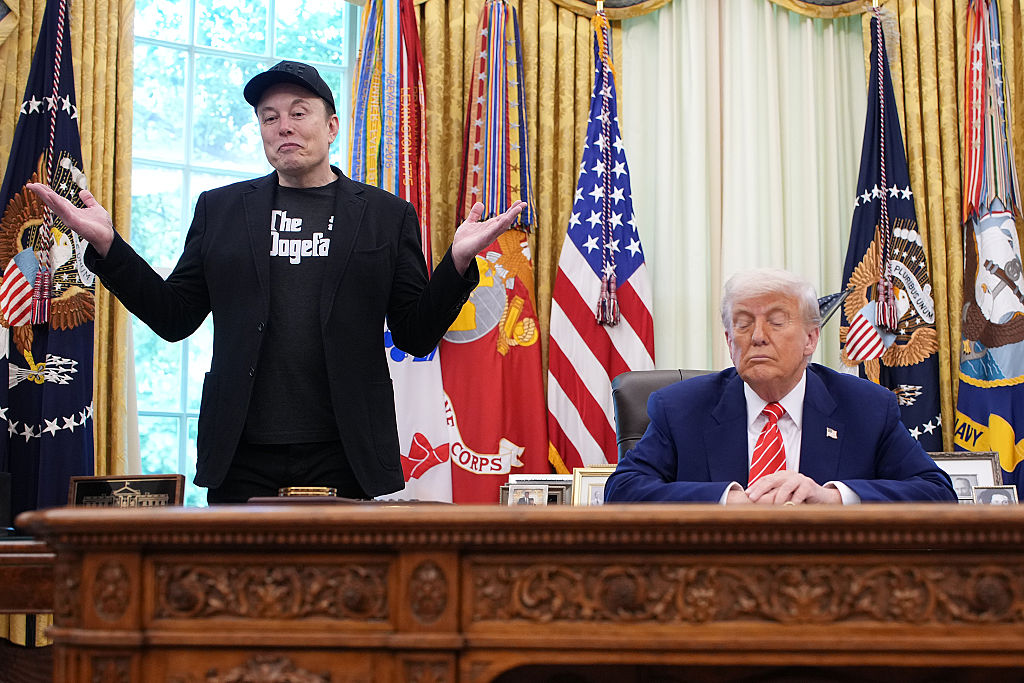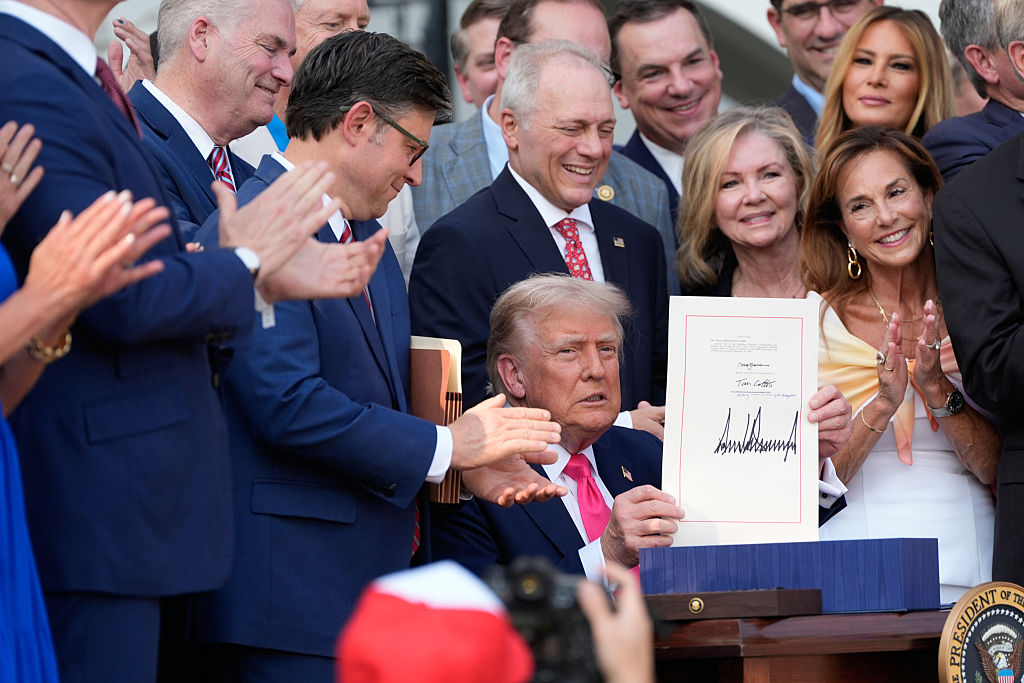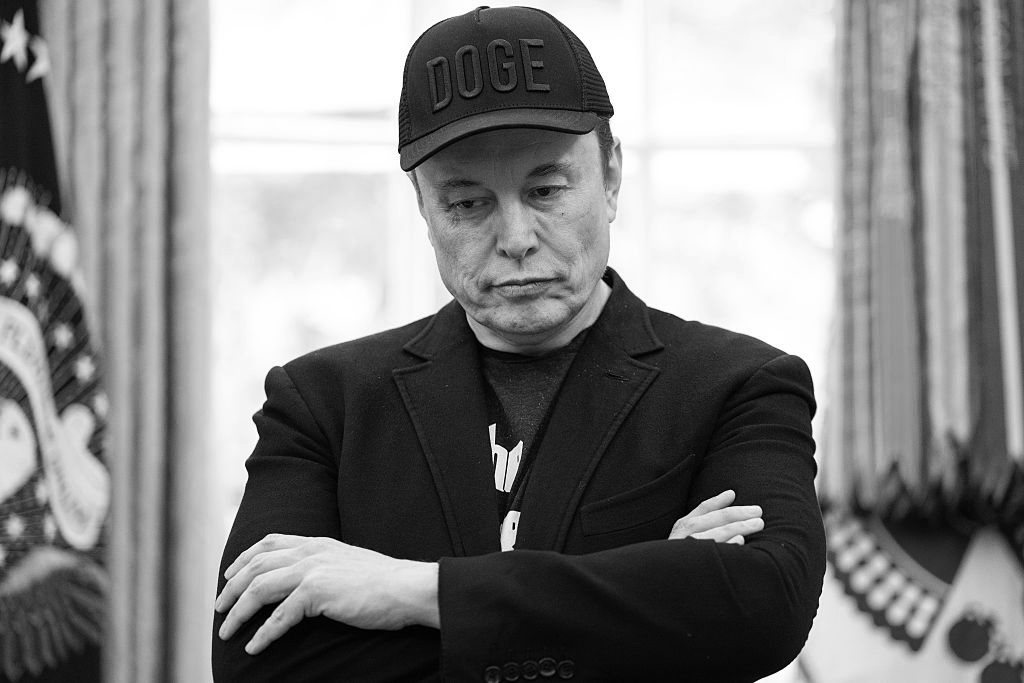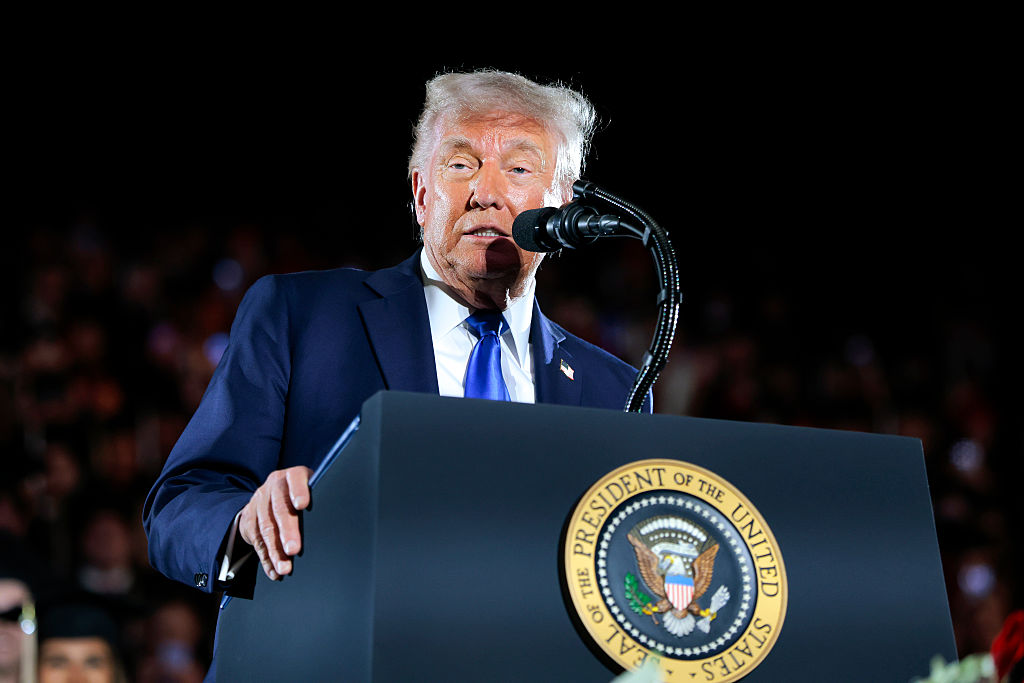There have been darker days for the House of Cheney.
In 2008, Vice President Dick Cheney left office amidst two imprudent wars and a capsizing economy. A decade on, the times are surprisingly kind to a family once among the most controversial in American politics. Dick’s daughter, Rep. Liz Cheney, is looking at a Senate run.
‘She’s got pretty good foreign policy, national security chops,’ Sen. John Cornyn of Texas said unironically earlier this month. ‘She’d be a great addition.’
The Cheneys’ rehabilitation is all the more remarkable for not occurring under a Democratic presidency, when the Right would be starved for standard-bearers — there were already eight years of that — but instead under a Republican president who has caustically repudiated the central legacy of the Cheney vice presidency: the Iraq war. No candidate raised the issue of conservative political failure in Iraq more forcefully than candidate Donald Trump. But then ideological dividing lines are not so clear for a president who has since retained as his national security adviser John Bolton, considered too hawkish by many among President George W. Bush’s cabinet.
Though Bush’s tenure is now roundly and rightfully condemned as a disaster, a sub-narrative has developed: as disasters go, W’s second term wasn’t all that terribly managed. While most of the worst events of the presidency occurred in 2005 and after — Hurricane Katrina, the bloodiest months in Iraq, the financial collapse — Bush began in his closing years to actually grow into the office. He swapped his central committee of Cheney and Donald Rumsfeld for Robert Gates and Condoleezza Rice; he exchanged preemptive war for ‘the surge’; and he helped prevent a second Great Depression.
The House of Cheney rejects this interpretation of events. This helps explain why, when the Bushes, McCains and Romneys demurred, the Cheneys backed Trump in 2016. That decision has paid dividends. According to two former senior aides from Cheney’s time in the Naval Observatory, by the end of Bush’s second term the vice president saw his superior as hopelessly moderate. The September 11, 2001 attacks hardened the heart of an already seasoned political warrior: there was no going back. President Donald Trump might appear to be a paleoconservative, Buchananite correction to Cheney and the neocons. But on many issues — a more unilateralist approach to the environment, taking it to the Mullahs in Iran, unwinding a regulatory overcorrection to the 2008 crisis — Cheney and his aides are quietly ticking off boxes on the wishlist developed during the frustrations of Bush’s second term. The coup de grace: Lewis. L. ‘Scooter’ Libby, Cheney’s convicted former chief of staff, was pardoned by Trump, a measure President Bush infamously declined to sign off on in his closing days in office. The episode permanently ruptured the Cheney-Bush relationship.
In 2019, Dick Cheney is seeing returns — for his progeny, his persistence, and his popularity. A few years ago, Liz Cheney’s political aspirations were deeply controversial, not just in Barack Obama’s Washington, but in Wyoming, where she first sought office in 2014 despite rival ties to the Virginia suburbs outside DC. In 2014, Liz Cheney’s first Congressional run, for the Wyoming senate seat held by Republican Mike Enzi, crashed and burned. Now, five years later and with Enzi retiring, there is an actual fight on for her services. Both the House GOP, where Cheney is the third-ranking member and most senior woman, and Mitch McConnell’s majority in the Senate, want her on the team. Cheney, only in her second term, has taken only two years to accomplish what her father did in eight: become chair of the House Republican Conference. Cheney replaced the somnolent Cathy McMorris Rodgers after the midterms, in a party starved of female stars.
And even the old man, who left office with a 13 per cent approval rating, is seeing his reputation on the mend. The smart set, horrified by the Trump carnival, is more likely to see him as a professional, if still-controversial, steward of American democracy. Ten years ago, Richard Bruce Cheney didn’t make appearances on the Today Show. In December, he appeared with Savannah Guthrie with ease. The most eerie cinematic portrayal of him yet — by Christian Bale in 2018’s Vice — might have been cruel, but it could also have been far less kind. Bale may have called the former vice president ‘Satan’ accepting the Golden Globe earlier this year, but Adam McKay’s biopic is hardly an evisceration, with neocon defenders of Cheney adopting the dramedy as their own. You could do worse than The Killers’ ‘The Man’ as your life soundtrack.



